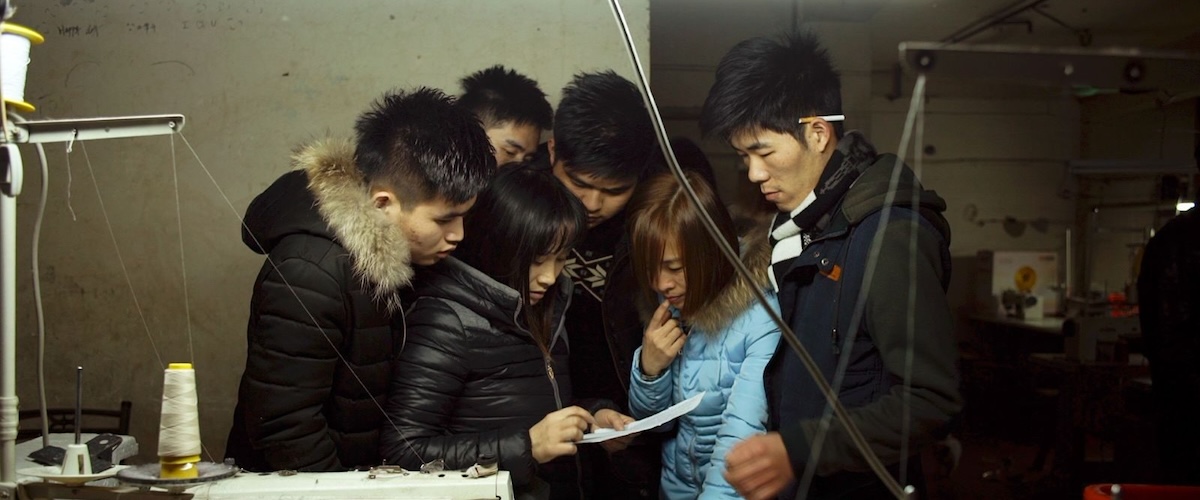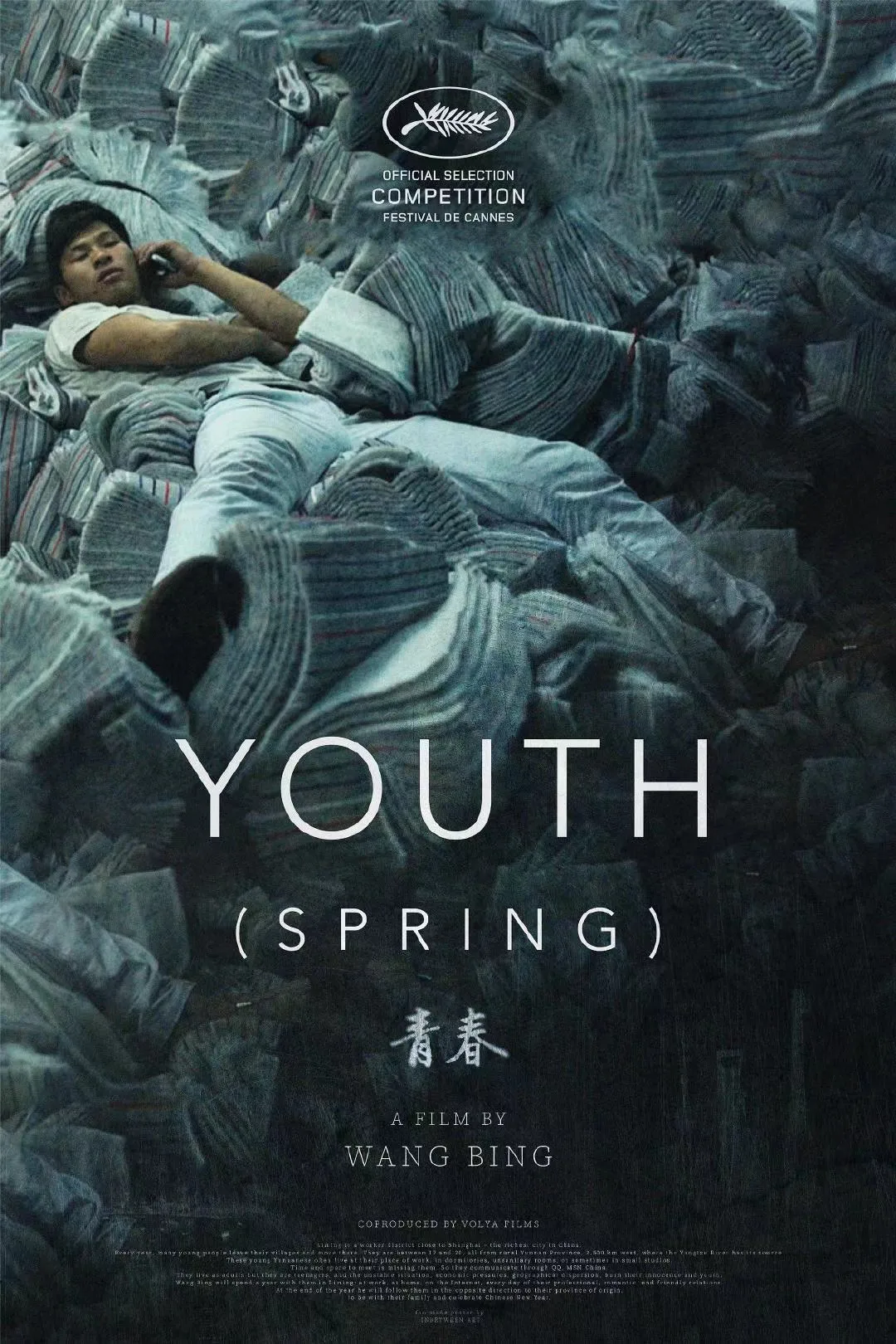Documentarian Wang Bing can count the three-hour-plus “Youth (Spring)” as among his more terse pictures. After all, his 2017 picture “15 Hours” clocked in at 15 hours and, like Andy Warhol’s eight-hour “Empire,” consisted of a single shot. The passage of time, of course, means different things depending on what you’re looking at. “Empire” is an overnight view of New York’s Empire State Building. Not much goes on. “15 Hours” was, by contrast, action-packed, as the hours are spent at a never-closed garment factory.
“Youth (Spring)” is also centered on garment manufacture, depicting two workshops making children’s clothing. Both are located in Zhili City, one on a street called Happiness Road. Like the title of this movie, there’s a substantial irony here. But aside from these two components, Wang doesn’t strike much of an overt tone in the filmmaking here. He does keep things moving. Shots are mostly static but don’t turn into marathons before a cut. There are plenty of characters, some of whom are introduced hours into the movie. As the film’s title suggests, these workers are young. The oldest, I believe, is 32-year-old Xiang Xiang, the speediest stitcher of the lot.
The movie begins with some amiable banter, a stitching competition, and a depiction of how the workday blends into a night spent in a dorm, a residence for which the term “nondescript” would be an elaborate compliment. Occasional glimpses outside reveal gray skies and trash-strewn streets. The days and nights start to blur into each other.
The viewer may latch onto some early narrative threads. One of the workers, Li Shengnan, is pregnant with the child of her co-worker. Will they keep the baby? As the picture continues, the viewer realizes we might not find out. Wang doesn’t exactly flit from story to story. He aims to aggregate individual moments and the repetition of certain conflicts (mainly concerning pay, naturally) to not bring the viewer into a web of intrigue but to lock the viewer in the same loop as the workers. It’s not a pleasant experience, but it’s an illuminating one.
Even the ostensible off hours provide little escape. One of the most confounding scenes is when a young woman tries to get something done at an uninviting Internet café only to endure a lecture from a bro about how keeping such late hours is bad for your skin. Eventually, she falls asleep at the desk.
The workshop manager who upbraids the workers almost midway through isn’t even designated by name, which may have been the individual’s choice, but also says something about how even the bosses in this labor hierarchy are mere cogs.
Wang’s non-adherence to narrative lines deliberately prevents the sense of sustained drama. Still, every sequence has some emotional or dramatic hook to make it engaging. Sort of. As the documentary builds, it tempts the viewer to assess the overall situation along the lines of “this is dispiriting to the point of not being very interesting,” after which it’s up to the viewer to determine whether or not that was/is the whole point of the enterprise.
The shooting style itself is similarly anti-pictorial. An argument between Li Shengnan and her father on a balcony is framed with the two standing behind a clothesline from which a blanket hangs, obscuring their figures, underscoring a sense of eavesdropping. The mode is very different from that of the stalwart American documentarian Frederick Wiseman, who likes to get in pretty close to what he’s shooting more often than not, and whose work is assembled to build, not necessarily narratively, but thematically at least. “Youth (Spring)” has no arc, so to speak. And, despite the fact that its final minutes are spent with one group of workers outside of their shops, taking in more expansive space than the movie has heretofore seen, it has no conclusion. The film begins and ends by depicting a form of Hell on Earth and the ways that it is tolerated by its residents.
Now playing in theaters.




















